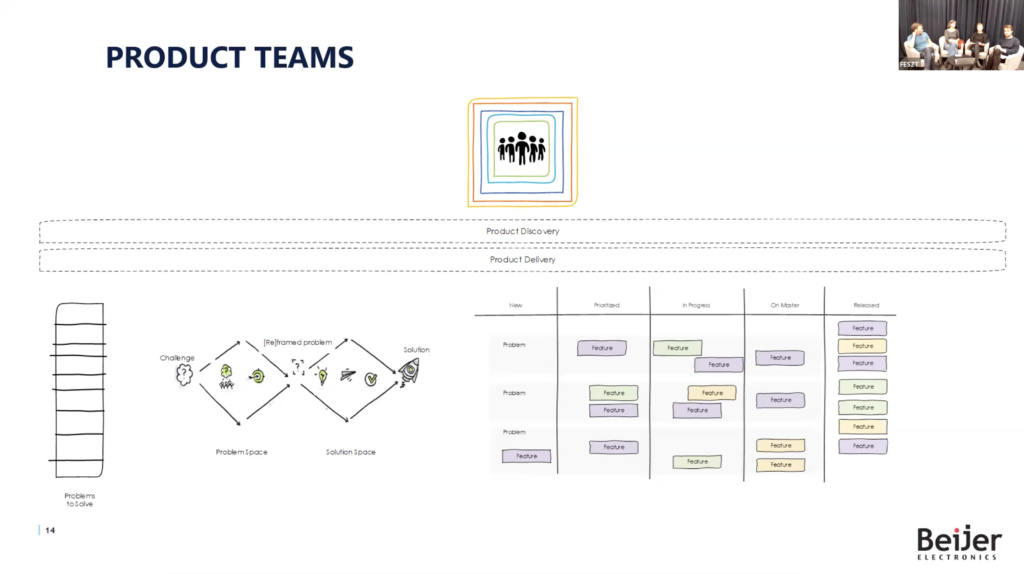Coaching game teams at King

Yassal talks about her experience leveraging the strengths of the teams at King:
Teams at King’s Stockholm game studio (the maker of Candy Crush) are autonomous, they are also encouraged to try, test, fail and learn from their experiences. For the past four years I’ve worked with amazingly talented people in this environment. We experimented and learned about how to structure teams, how to test and iterate on features and how to help teams through times of transition and change.
What I learned:
You have to be ok with failure. No, really, you have to be ok with actually failing. If you’re not failing, you’re not experimenting. Anything you do can have unintended consequences. You can use KPI’s (key performance indicators) to predict the outcome, but these are just indicators. Until you actually try it out, you won’t know what the result will be. We used paper prototypes, design studios, ritual dissent, AB tests, previous performance, hypotheses with defined signs of failure and success, to structure our work with experiments.
All people have the potential to succeed. The context, environment and how people are treated affect this potential. We continuously improved and grew our culture and way of working. The environment was collaborative and team members felt a strong sense of ownership and responsibility. Subteams had cohesive goals that helped achieve the goals of the game team as a whole. Stakeholders were visible and agreed to ways of working with the teams. We also valued each person and respected their needs, while jointly celebrating the successes of the team. Finally, we also made sure that the drivers and definition of success were clear to the teams.
Enjoy what you do, or do what you enjoy! Generally speaking, people at King love making games. They also love playing games. They are dedicated to what they’re working on. The synergies created in this kind of environment are amazing. We worked at recruiting people who love to do what they do. This doesn’t always mean that they are gamers, and that’s good too, since we want diverse teams. Recruiting is the hard part, then all you need are nudges.
- “Never be blocked”, people make sure that they’re never blocked, because being blocked means you can’t do what you enjoy doing.
- “Ask for help” Need help? No problem, just ask and someone will gladly share their expertise with you.
- “Ask for and give critical feedback” people want to do the best job that they can, this makes asking for feedback and giving it easier.
- “Keep learning” when you enjoy what you do you’re driven to level up.
The methods that we used were, of course, context specific. They changed over time and depended on the team and team members, as well as the challenges faced by the teams. The constants were: clearly communicated values and drivers. This allowed the teams to operate cohesively, while giving them a lot of freedom.
—–
What people have said about Yassal at King:
“Everything you want or ever dreamt of from and Agile Coach. She executes and performs all skillsets like pro, facilitation, coaching, team building, motivation, conflict management etc.”
“An amazing professional and a super warm, funny and friendly colleague to work with.”


